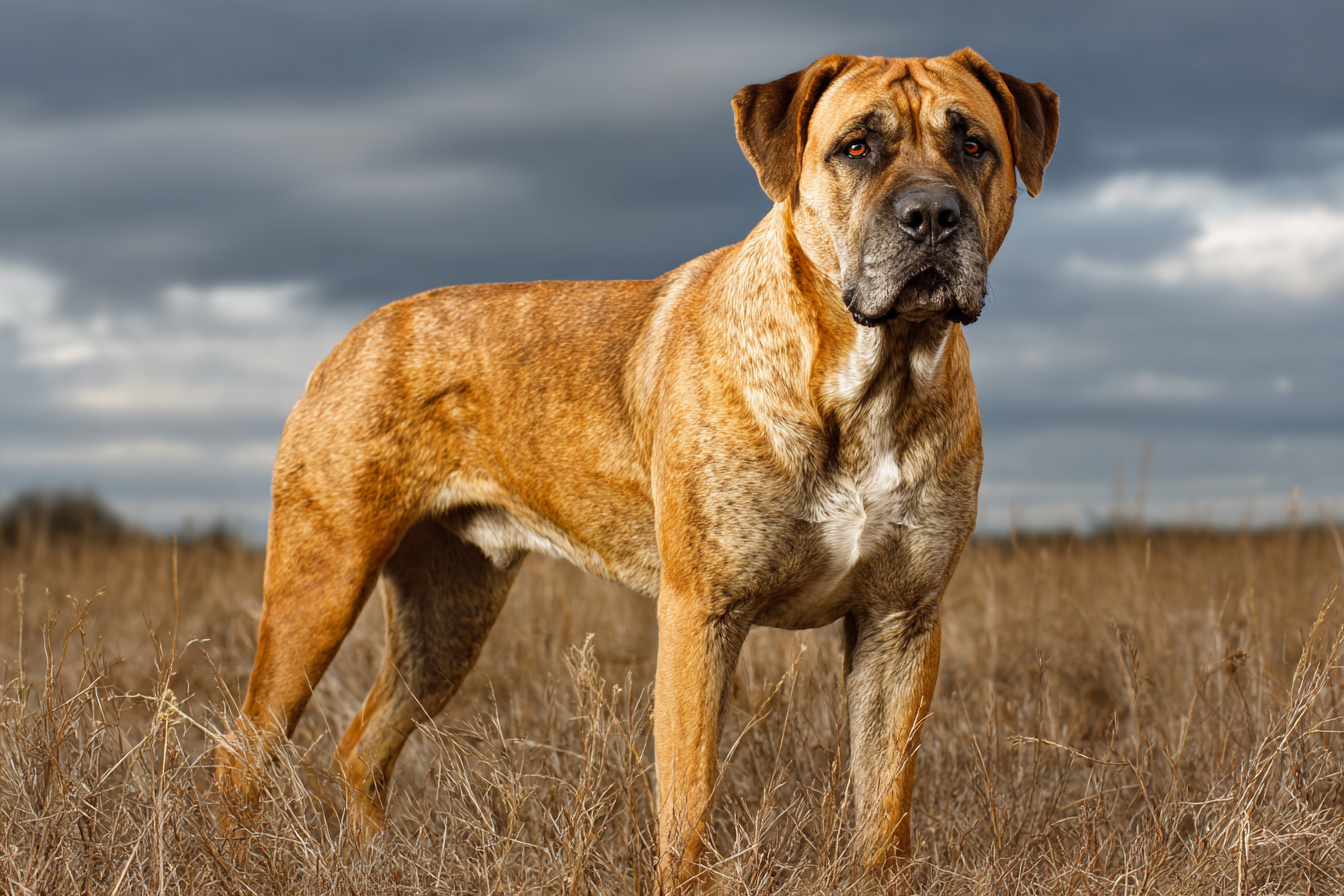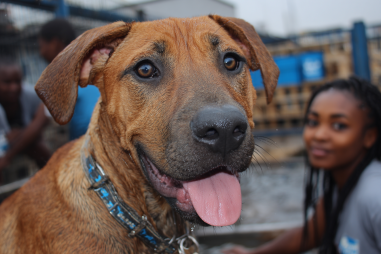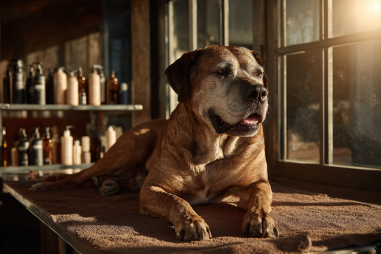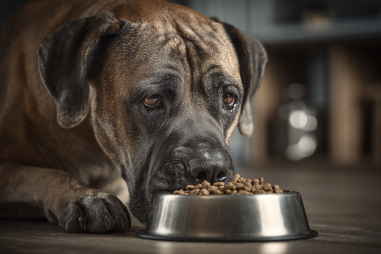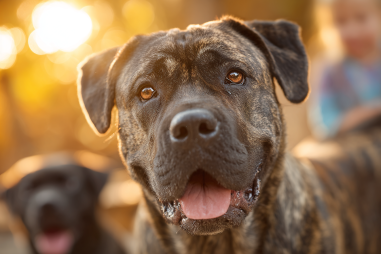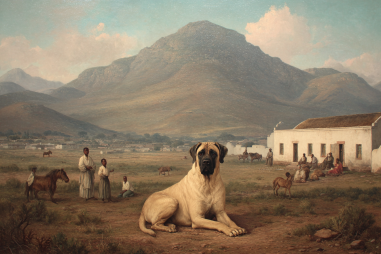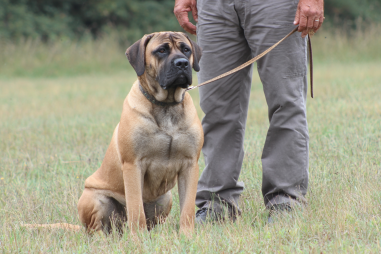The Boerboel is a distinctive and powerful dog breed that has captured the hearts of many dog enthusiasts around the world. Originating from South Africa, this breed is known for its robust physique, loyalty, and protective instincts. Whether you are considering adding a Boerboel to your family or are simply curious about what makes them stand out, understanding their breed characteristics is essential. From their physical traits to temperament and overall suitability as family companions and guard dogs, this article dives deep into what defines the Boerboel breed.
Introduction to the Boerboel Breed
The Boerboel is a South African mastiff-type dog that was originally bred to protect homesteads and farms. The name “Boerboel” comes from Afrikaans, where “Boer” means farmer and “boel” means dog or companion. These dogs were developed by settlers to be fearless guardians of their property while also being a loyal family companion. Their heritage as working dogs has shaped much of their physical and behavioral traits, making them one of the most reliable and imposing guard breeds in the canine world.
Despite their fierce reputation, Boerboels have a warm and loving nature toward their families. They are intelligent, driven, and require a confident owner who understands their needs and nature. Because of their size and power, appropriate training and socialization from an early age are critical.
Physical Traits: Size, Coat, and Colors
One of the first things that anyone notices about a Boerboel is their impressive size and muscular build. These dogs are large and powerful, built to instill confidence and deter threats.
- Size: Adult male Boerboels typically weigh between 150 to 200 pounds (68 to 90 kg), while females weigh slightly less, generally ranging from 110 to 150 pounds (50 to 68 kg). Their height at the shoulder varies but is usually between 24 to 28 inches (60 to 70 cm), with males being larger and more robust than females.
- Coat: Boerboels have a short to medium-length coat that is dense and smooth. This short coat is easy to maintain and offers some protection against rough terrain and weather. Their coat is weather-resistant but not designed for extreme cold, so climate considerations are important for potential owners.
- Colors: Boerboels come in a variety of colors and markings. Common coat colors include fawn, tan, brown, red, brindle, and even black. Some dogs have distinctive black masks on their faces, which accentuate their alert and intelligent expression. The diversity in coat color adds to their unique appearance, but all colors share the same physical stature and strength.
Temperament and Behavior
While appearance plays a major role in the Boerboel’s identity, their temperament is equally defining. Bred to protect families and property, Boerboels are naturally vigilant and confident dogs. However, their temperament often surprises those who expect nothing but aggression from such a large guard dog.
- Loyal and Protective: Boerboels form strong bonds with their family members and are instinctively protective. They have a natural guardian instinct, making them exceptional watchdogs and family protectors. However, they are not typically aggressive without cause; rather, they display a calm confidence that serves to deter potential threats.
- Intelligent and Trainable: This breed is smart and moderately easy to train, though their stubborn streak means consistent, firm, and positive training methods are best. Early socialization is essential to ensure they grow up confident and able to discern friend from foe.
- Calm and Affectionate at Home: Indoors, Boerboels are affectionate, calm, and very much family-oriented. They enjoy spending time with their owners and can be surprisingly gentle with children when properly socialized. Their size means supervision around young kids is important, but their protective nature makes them loyal companions.
- Exercise and Stimulation Needs: As a working breed, Boerboels need regular physical exercise and mental stimulation to stay healthy and happy. Without enough exercise, they may become bored and develop destructive habits.
Health and Lifespan Overview
Like many large dog breeds, the Boerboel has some health considerations potential owners should be aware of to ensure a long and healthy life for their pet.
- Common Health Issues: Boerboels can be prone to hip dysplasia, a common issue in large dogs where the hip joint develops abnormally. They may also face issues like elbow dysplasia, heart problems, and certain genetic conditions such as entropion (an eye condition). Responsible breeding and regular veterinary care can help reduce these risks.
- Lifespan: The average lifespan of a Boerboel is typically around 10 to 12 years, which is common for large breeds. Providing a balanced diet, exercise, and routine vet visits will contribute positively to their lifespan.
- Preventive Care: Early socialization, training, and monitoring of their physical health with regular check-ups will help ensure a well-adjusted and physically sound dog. Maintaining a healthy weight is especially important to lessen the strain on their joints.
Suitability as Family and Guard Dogs
One of the most important aspects of understanding Boerboel breed characteristics is knowing whether they fit well with your family lifestyle and needs.
- Family Dog: Boerboels can make excellent family dogs thanks to their affectionate and loyal nature. They tend to be gentle with children and protective of all household members. That said, due to their size and strength, supervision and proper introductions are essential when they interact with small children or elderly family members.
- Guard Dog: Their original purpose as a protective farm dog remains one of their strongest traits. Boerboels are loyal guardians with a natural instinct to protect their home and family. Their imposing appearance combined with confident behavior makes them effective deterrents against intruders.
- Living Environment: While they can adapt to various living situations, Boerboels do best in homes with space to move and exercise. Apartment living is generally not recommended unless the owner is very committed to meeting their high exercise needs. A securely fenced yard is ideal.
- Training and Socialization: Due to their protective instincts, timely training and ongoing socialization are crucial. A well-trained Boerboel will obey commands and be able to differentiate between a genuine threat and friendly visitors. Their intelligence and eagerness to please make them responsive to structured training regimes.
Final Thoughts on the Boerboel
The Boerboel is a remarkable breed that combines power, loyalty, and intelligence into one devoted companion. Their unique origins as South African farm protectors give them a clear identity among large dog breeds. With proper care, training, and socialization, a Boerboel can be a loving family member and an effective guardian. They thrive in active households where their exercise and mental stimulation needs are met, and where their protective instincts are guided by responsible ownership.
If you are looking for a sturdy, confident, and deeply loyal dog with a rich history and impressive physical presence, the Boerboel may be the right breed for you. Understanding their breed characteristics will help ensure that you and your Boerboel build a strong and fulfilling relationship that lasts for years.

